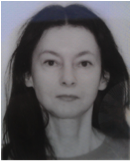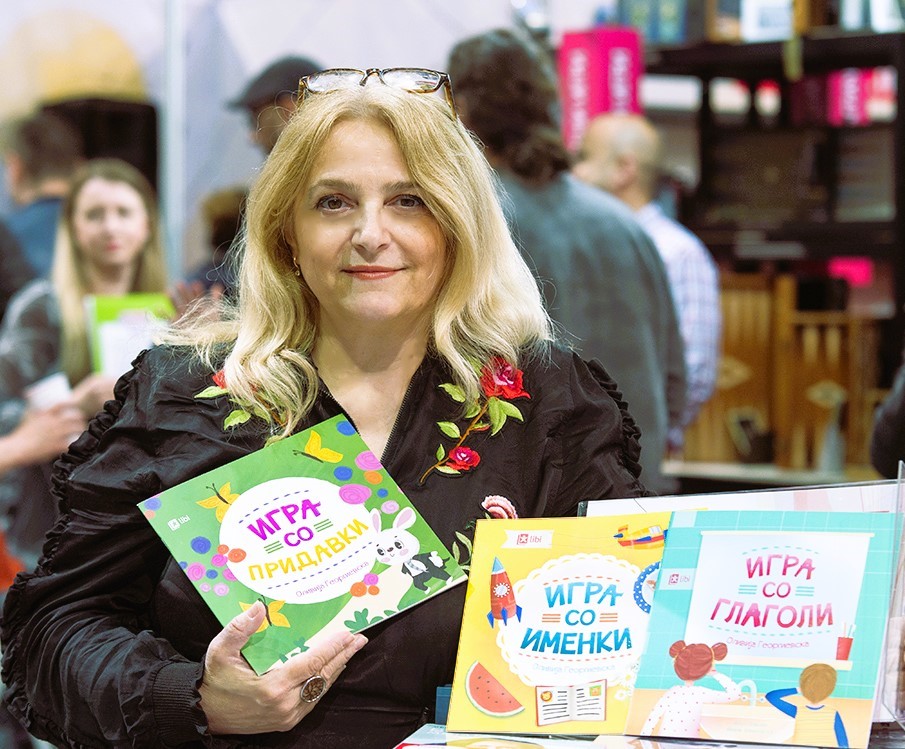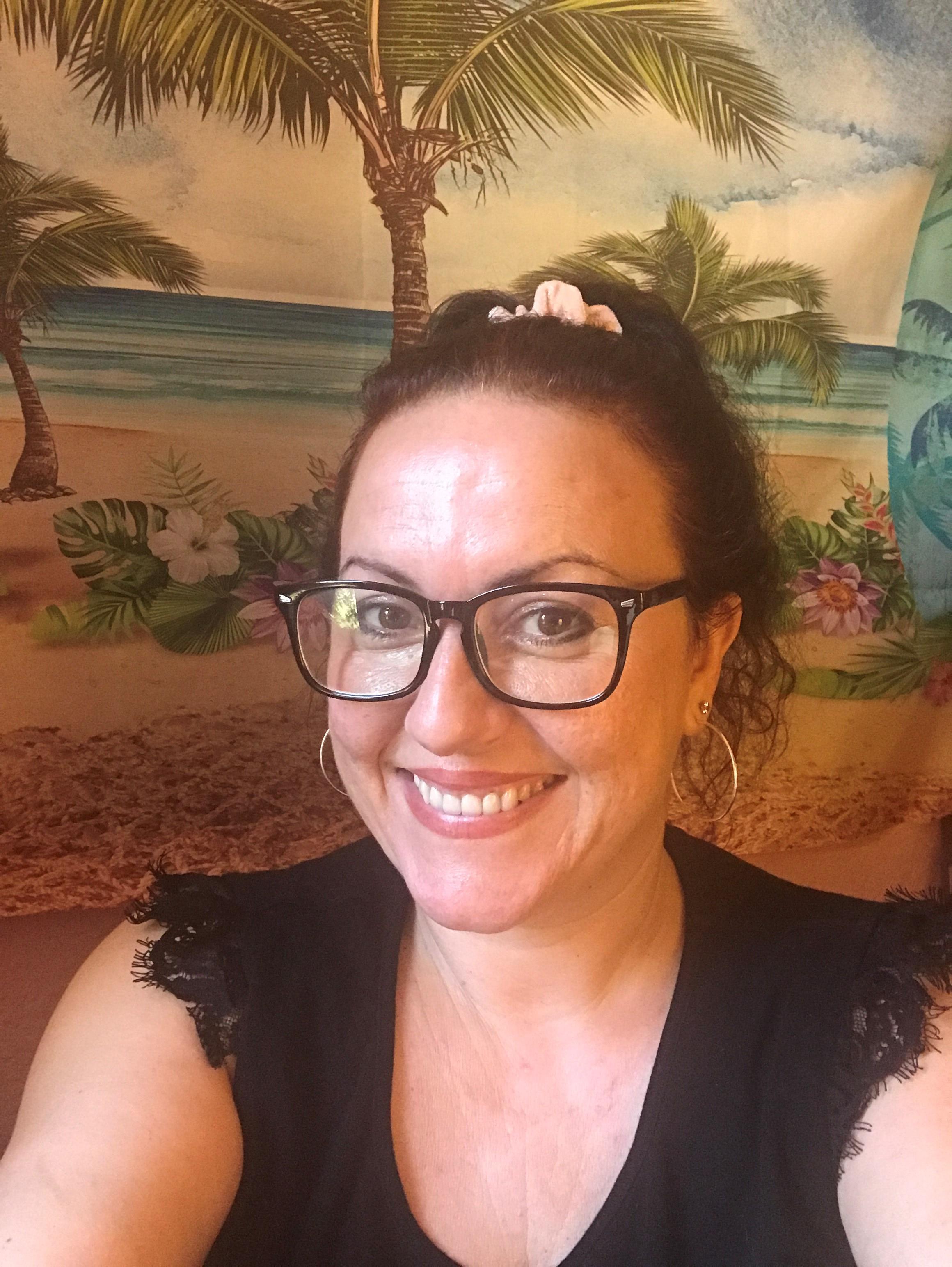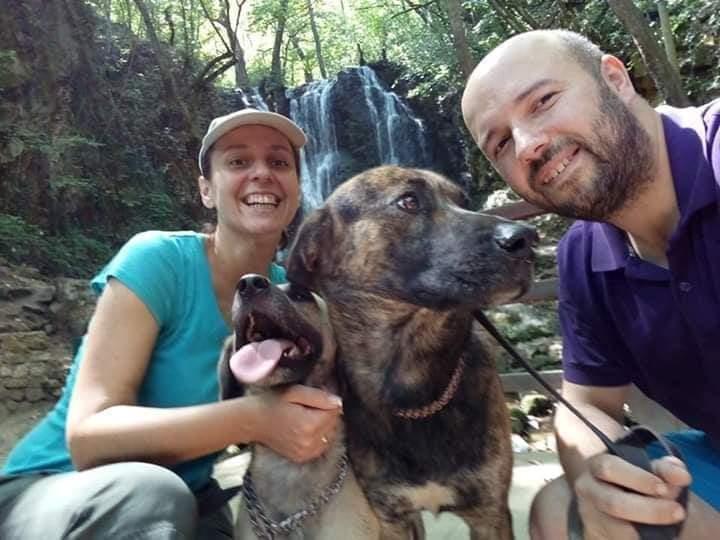Katarina Cipuseva
 Mrs. Cipuseva has been teaching Macedonian in person, at Macquarie University's Department of European Languages, and online for over a decade. Born and raised in Macedonia, she currently resides in Australia.
Mrs. Cipuseva has been teaching Macedonian in person, at Macquarie University's Department of European Languages, and online for over a decade. Born and raised in Macedonia, she currently resides in Australia.
Olivija Georgievska
 Mrs. Olivija Georgievska has been a Macedonian language and literature teacher for more than 15 years. She graduated from the University of Sts. Cyril and Methodius in Skopje with a degree in Comparative Literature and holds an MA in Health Psychology and Counseling from UACS in Skopje. Her children's picture books have been published by Ars Lamina. She loves arts, crafts and traveling. She considers her greatest role to be a very proud mother of two great daughters.
Mrs. Olivija Georgievska has been a Macedonian language and literature teacher for more than 15 years. She graduated from the University of Sts. Cyril and Methodius in Skopje with a degree in Comparative Literature and holds an MA in Health Psychology and Counseling from UACS in Skopje. Her children's picture books have been published by Ars Lamina. She loves arts, crafts and traveling. She considers her greatest role to be a very proud mother of two great daughters.
Aleksandra Nikolova, Ed.D. TESOL
 Dr. Nikolova has taught ESL/EFL, Macedonian, Serbian, as well as Linguistics and Methodology courses online for over 10 years. She has been a teacher trainer at UCSD, SDSU, Alliant International University, and Ashford University in San Diego, California, as well as at CETYS Universidad in Tijuana, Mexico. Currently, she is the academic director at the Serbian School in San Diego, California. After finishing her BA in English Language and Literature in Skopje, Macedonia, she attended and graduated from the MA TESOL program at the University of Illinois at Chicago. Later, she graduated with an EdD degree in TESOL/Applied Linguistics from Alliant International University in San Diego, CA. She has been living and working in San Diego for over 13 years.
Dr. Nikolova has taught ESL/EFL, Macedonian, Serbian, as well as Linguistics and Methodology courses online for over 10 years. She has been a teacher trainer at UCSD, SDSU, Alliant International University, and Ashford University in San Diego, California, as well as at CETYS Universidad in Tijuana, Mexico. Currently, she is the academic director at the Serbian School in San Diego, California. After finishing her BA in English Language and Literature in Skopje, Macedonia, she attended and graduated from the MA TESOL program at the University of Illinois at Chicago. Later, she graduated with an EdD degree in TESOL/Applied Linguistics from Alliant International University in San Diego, CA. She has been living and working in San Diego for over 13 years.
Meri Tancheva
 Mrs. Tancheva has been teaching Macedonian to different age groups within the classroom and online, since 2016. She believes that when teachers and students work as a team, students can have a successful learning experience. Languages have been her passion and this love for language learning has also informed her teaching. In addition to her native Macedonian, she also speaks English, Greek, Montenegrin, Serbian and some German. She was born and raised in Macedonia but has also lived in the U.S.A. and in Greece. In her free time, she enjoys hiking and spending time with her husband and two adopted dogs.
Mrs. Tancheva has been teaching Macedonian to different age groups within the classroom and online, since 2016. She believes that when teachers and students work as a team, students can have a successful learning experience. Languages have been her passion and this love for language learning has also informed her teaching. In addition to her native Macedonian, she also speaks English, Greek, Montenegrin, Serbian and some German. She was born and raised in Macedonia but has also lived in the U.S.A. and in Greece. In her free time, she enjoys hiking and spending time with her husband and two adopted dogs.